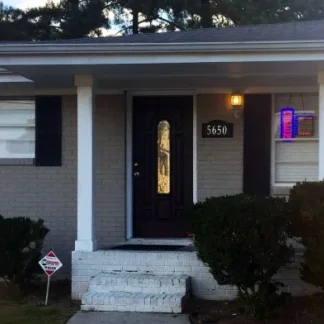Jireh Counseling
Jireh Counseling is a private rehab located in College Park, Georgia. Jireh Coun...
Defying the Odds offers outpatient treatment for individuals with alcohol and/or substance addiction. The program includes group therapy, anger management programs and more. Defying the Odds is located at Atlanta, Georgia.
The Anger Management Program (12 weeks) available at Defying the Odds offers treatment for individuals in order to identify their anger triggers and impulsive behaviors Because uncontrolled anger can escalate into verbal and/or physical abuse and violence, they offer an alternative solutions program designed to provide conflict resolution skills for managing anger. Through participation in individual sessions and/or anger management groups, participants are provided with a safe, supportive environment that enables them to learn how they typically respond when angry and resulting consequences.
ASAM Level 1 Treatment (Short Term or Long Term) is designed to help individuals reduce risk any type of alcohol or drug program, self-assessment to help people understand and accept the need to make changes to protect the things most value in their lives, help individuals to understand their high and low risk choices; involvement with 5 stages of change. Participates will gain a perspective on addiction prevention; establish working relationship with probation officer; encourage growth and development, etc. The program’s guiding principles are awareness, responsibility, and management.
Contact us for more information: (404) 209-7258

Connect with Defying the Odds by calling their admissions team directly.
(404) 209-7258 Website Get DirectionsGroup therapy is any therapeutic work that happens in a group (not one-on-one). There are a number of different group therapy modalities, including support groups, experiential therapy, psycho-education, and more. Group therapy involves treatment as well as processing interaction between group members.
Moral Reconation Therapy (MRT) is a modality based on strengthening moral reasoning, that can be used in substance abuse treatment. Originally created to help criminal offenders stop committing crimes, it is a structured approach that includes both group and individual counseling, as well as homework exercises. The MRT workbook is structured around 16 steps (units) focusing on 7 treatment issues, including building a healthy, positive identity; developing a higher frustration tolerance; and forming a strong moral belief structure. Participants meet 1-2 times weekly in groups, and can complete all steps of the MRT program in 3-6 months.
Moral Reconation Therapy (MRT) is a modality based on strengthening moral reasoning, that can be used in substance abuse treatment. Originally created to help criminal offenders stop committing crimes, it is a structured approach that includes both group and individual counseling, as well as homework exercises. The MRT workbook is structured around 16 steps (units) focusing on 7 treatment issues, including building a healthy, positive identity; developing a higher frustration tolerance; and forming a strong moral belief structure. Participants meet 1-2 times weekly in groups, and can complete all steps of the MRT program in 3-6 months.
Jireh Counseling is a private rehab located in College Park, Georgia. Jireh Coun...
Atlanta VA Health Care System - Fulton County Clinic is a public rehab located i...
Anchor Hospital Outpatient Campus, located in Riverdale, Georgia, offers chemica...
New Heights Behavioral Consultants is a private rehab located in Jonesboro, Geor...